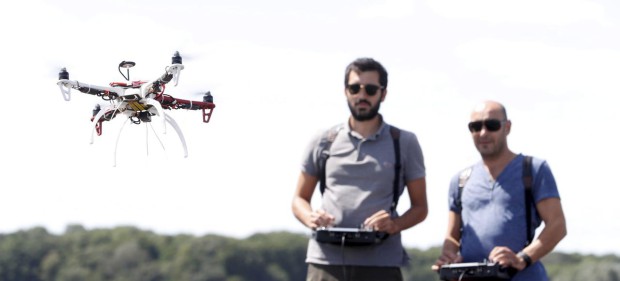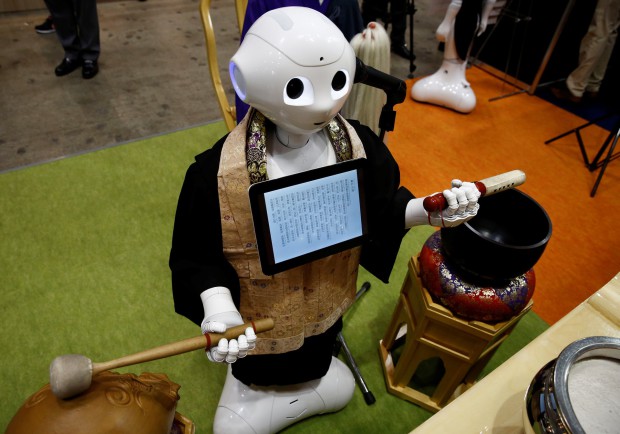Chaque vendredi, dans sa revue de presse, Maddyness vous propose une sélection d’articles qui ont retenu l’attention de la rédaction.
Comment les apps Figaro, L’Équipe ou Closer participent au pistage de 10 millions de Français
Une cinquantaine d'applications françaises fournissent à une entreprise tierce les données de localisation de 10 millions de Français, toutes les trois minutes, à des fins publicitaires. Cette traque massive de la population est organisée dans le secret d'une startup du neuvième arrondissement nommée Teemo, anciennement Databerries. Enquête. Lire la suite sur Numerama

China Is Quickly Embracing Facial Recognition Tech, For Better And Worse
Would you want to have your face tracked by ever present cameras so others can know your identities and whereabouts? While the answer is likely to be no for many in the west, the scenario is becoming a reality in China. Facial-recognition technology, once a staple of Minority Report-style movies, is quickly inserting itself into the daily lives of more and more people in the country. Unfettered by privacy regulations, China’s largest internet companies are scooping up hundreds of millions of photos from their online apps to teach computers to analyze facial features. These companies have identified potential revenue streams from advances in artificial intelligence, while catering to Beijing’s interest in deploying the technology for enhanced surveillance. Lire la suite sur Forbes

Chômeurs, ils se forment pour devenir pilotes de drones
«Terrain militaire. Défense d'entrer.» Il est 14 heures, ce jeudi ensoleillé du mois d'août, quand trois voitures passent la grille de l'ancienne base aérienne miliaire de Brétigny-sur-Orge, en région parisienne. Après avoir longé des hangars, les véhicules s'arrêtent au bout d'une piste d'atterrissage désaffectée. «Il y a beaucoup de vent aujourd'hui, ça ne va pas être évident.» Nordine, 40 ans, passe un harnais autour de ses épaules, auquel est attachée une imposante télécommande. Cette dernière permet de faire voler un petit drone à quatre hélices, dont Nordine vérifie les branchements. Lire la suite sur Le Figaro

How Hate Groups Forced Online Platforms to Reveal Their True Nature
White supremacist marchers had not yet lit their torches when the deletions began. The ‘‘Unite the Right’’ Facebook page, which had been used to organize the rally in Charlottesville, was removed the day before the event was scheduled, forcing planners to disperse to other platforms to organize. And then, in the hours and days after a participant drove his car into a crowd of counterprotesters, killing 32-year-old Heather Heyer and injuring at least 19 others, internet companies undertook a collective purge. Facebook banned a range of pages with names like ‘‘Right Wing Death Squad’’ and ‘‘White Nationalists United.’’ Reddit banned, among others, a hard-right community called ‘‘Physical Removal,’’ an organizer of which had called the weekend’s killing ‘‘a morally justified action.’’ Twitter suspended an unknown number of users, including popular accounts associated with 4chan’s openly fascistic Politically Incorrect message board, or /pol/. Discord, a chat app for gamers that doubled as an organizing tool for the event, and where a prominent white supremacist had called for disrupting Heyer’s funeral, rushed to do cleanup. Lire la suite sur The New York Times

Une IA compose un album pop : quid de ses droits d’auteur ?
Les compositeurs n’ont qu’à bien se tenir ! Dans les années à venir, leur travail créatif sera peut-être concurrencé par des systèmes d’intelligence artificielle capables eux-aussi d’élaborer des musiques qui seront appréciées par le public. En fait, c’est déjà en partie le cas : il existe en effet plusieurs initiatives dans lesquelles des algorithmes sont mis à contribution pour générer des morceaux de musique. Lire la suite sur Numerama

The future of funerals? Robot priest launched to undercut human-led rites
In Japan robots can serve as companions, helpers for the elderly, entertainment bots and even sexual partners, but now SoftBank’s humanoid robot Pepper has put itself up for hire as a Buddhist priest for funerals. Taking the German blessing bot’s idea and running with it, Pepper’s new code will let it chant sutras in a computerised voice while tapping a drum, providing a cheaper alternative to a human priest to see your loved ones off into the eternal sleep. The robot was on display on Wednesday at a funeral industry fair, the Life Ending Industry Expo, in Tokyo, shown off by plastic molding maker Nissei Eco. Lire la suite sur The Guardian






